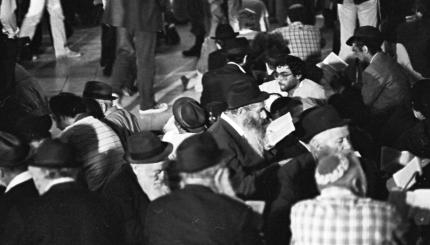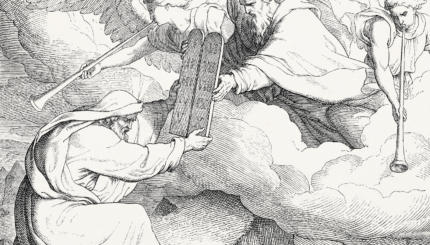Compassion is fellow-feeling, the emotion of caring concern; in post-biblical Hebrew rahamanut, interestingly from the word rehem, ‘womb’, originating in the idea of either motherly love or sibling love (coming from the same womb); in biblical Hebrew rahamim. The Talmudic rabbis (Yevamot 79a) considered compassion to be one of the three distinguishing marks ofJews. A ic term frequently used for God, particularly in legal discussions, is the Aramaic Rahamana, ‘the Compassionate’, denoting that the Torah, the Law, is God’s compassionate gift to Israel.
In Jewish teaching compassion is among the highest of virtues, as its opposite, cruelty, is among the worst of vices. The prophet Jeremiah speaks of the people from the north country who ‘lay hold on bow and spear, they are cruel, and have no compassion’ (Jeremiah 6:21). The people of Amalek, in particular, are singled out in the Jewish tradition as perpetrators of wanton cruelty and an uncompassionate Jew is called an Amalekite. Compassion is to be extended to animals as well as to humans. It is strictly forbidden to cause unnecessary pain to animals. There is a Talmudic rule (Gittin 62a), still followed by pious Jews, that before sitting down to a meal one must first see that the domestic animals are fed. The Midrash remarks that Moses proved his fitness to be the shepherd of Israel by the tender care with which he treated the sheep when he tended the flock of his father-in-law.
Commenting on the law against killing an animal and its young on the same day (Leviticus 22: 26), the Zohar (iii. 92b) says: ‘Thus if a man does kindness on earth, he awakens loving-kindness above, and it rests upon that day which is crowned therewith through him. Similarly, if he performs a deed of mercy, he crowns that day with mercy and it becomes his protector in the hour of need. So, too, if he performs a cruel action, he has a corresponding effect on that day and impairs it, so that subsequently it becomes cruel to him and tries to destroy him, giving him measure for measure. The people of Israel are withheld from cruelty more than all other peoples, and must not manifest any deed of the kind, since many watchful eyes are upon them.’
There is, in this connection, a revealing tale in the Talmud (Bava Metzia 85a). A calf, being led to the slaughter, ran for protection to Rabbi Judah the Prince, but the Rabbi said to the calf: ‘Go! For this you were created’, whereupon the rabbi was visited with great suffering. Some time later, Rabbi Judah noticed his servant sweeping out a nest of weasels from the corner of his palace. ‘Let them be,’ he ordered, ‘it is written [Psalms 145: 9] “His tender mercies are over all His works”‘, whereupon the suffering departed from him. The point of the story seems to be that cold calculation, even when justified, is no substitute for compassion.

Help us keep Jewish knowledge accessible to millions of people around the world.
Your donation to My Jewish Learning fuels endless journeys of Jewish discovery. With your help, My Jewish Learning can continue to provide nonstop opportunities for learning, connection and growth.
The story is not told in support of vegetarianism. There is no suggestion that the calf should not be killed to provide humans with food. But the compassionate man, even when he can do nothing to prevent suffering, will still have pity for those that suffer, even if they are dumb animals. The rabbi’s response was unfeeling, as he came to realize when his suffering departed after he showed compassion to the weasels, even though here, too, he had no actual obligation to spare them.



